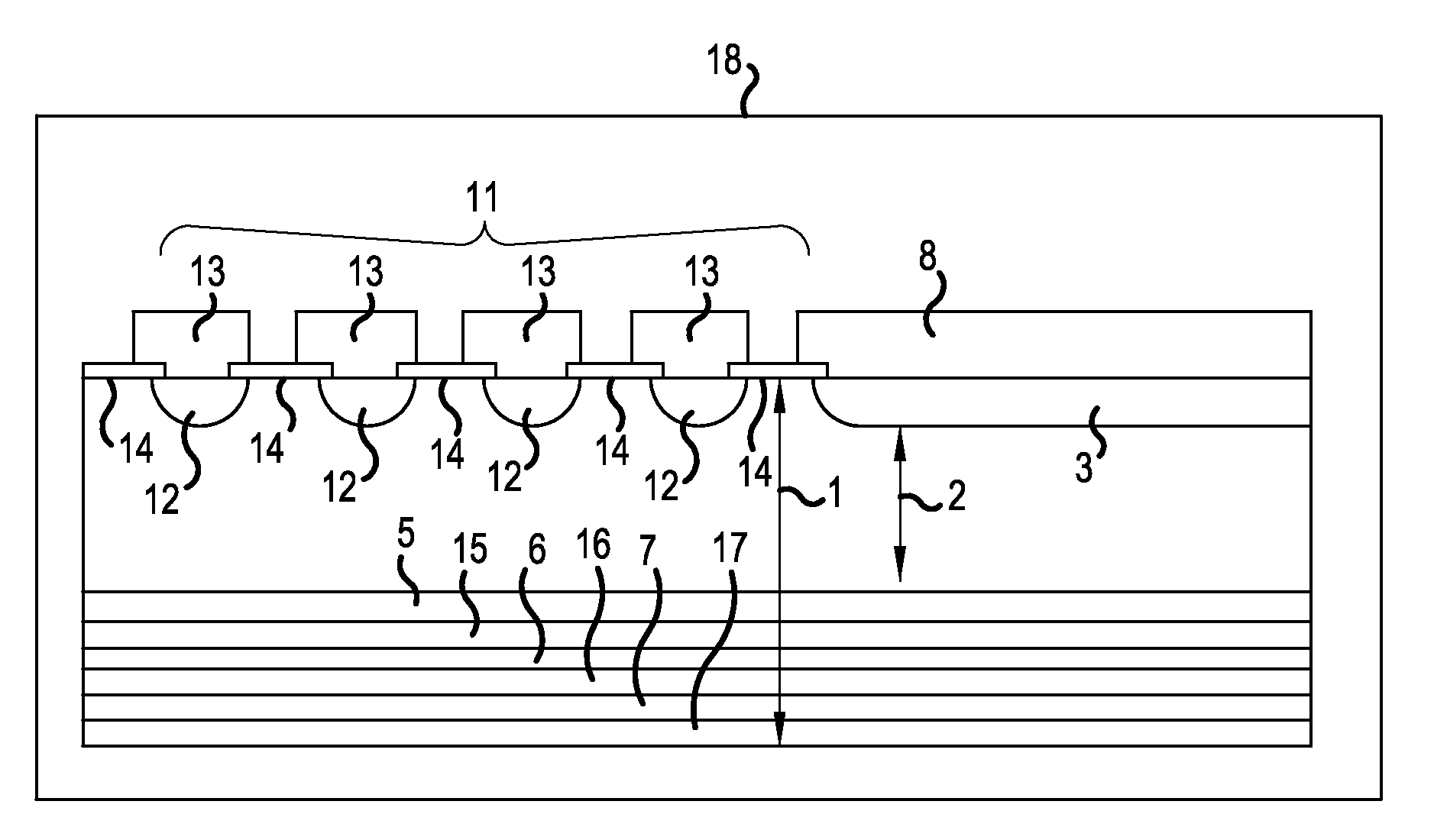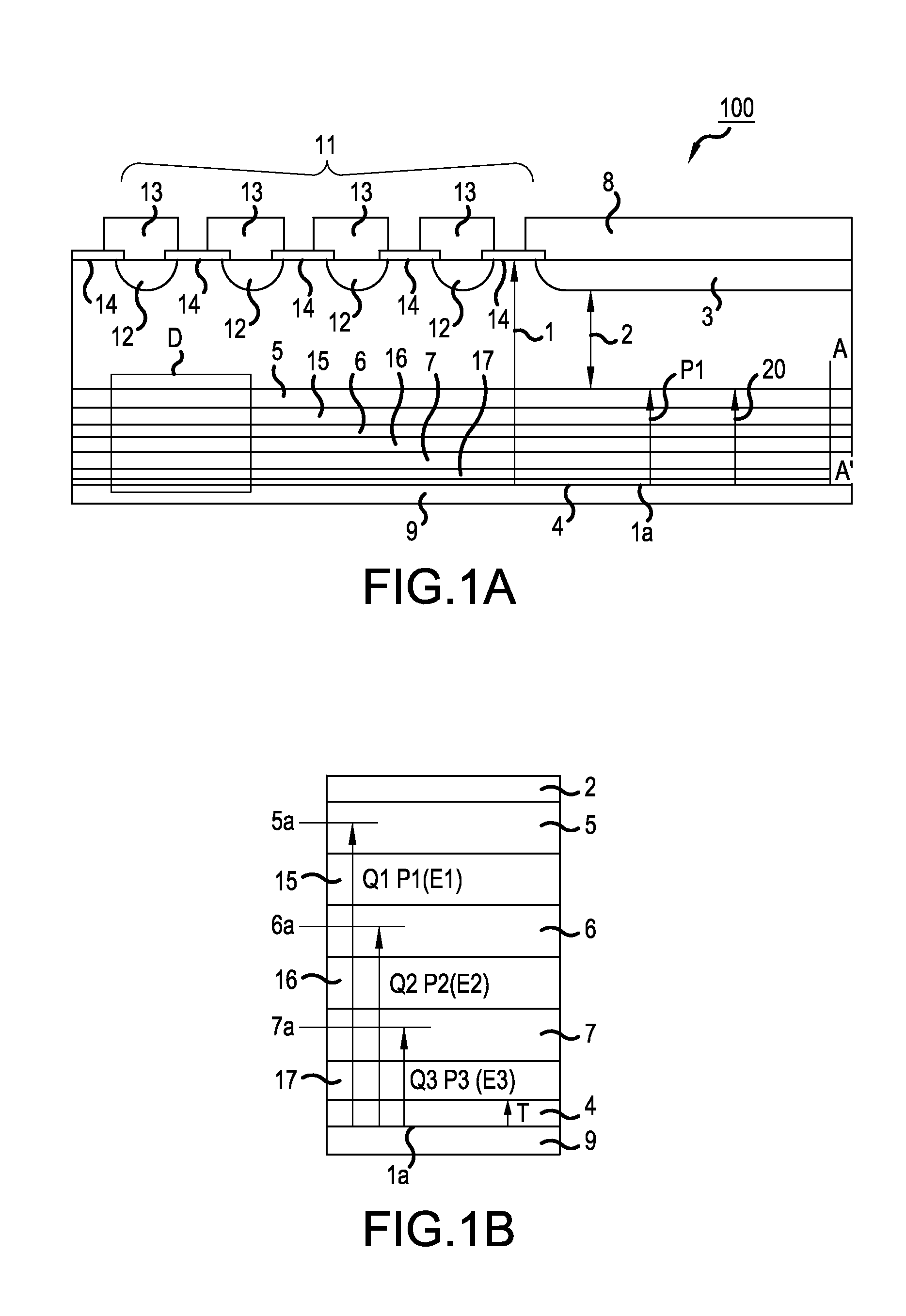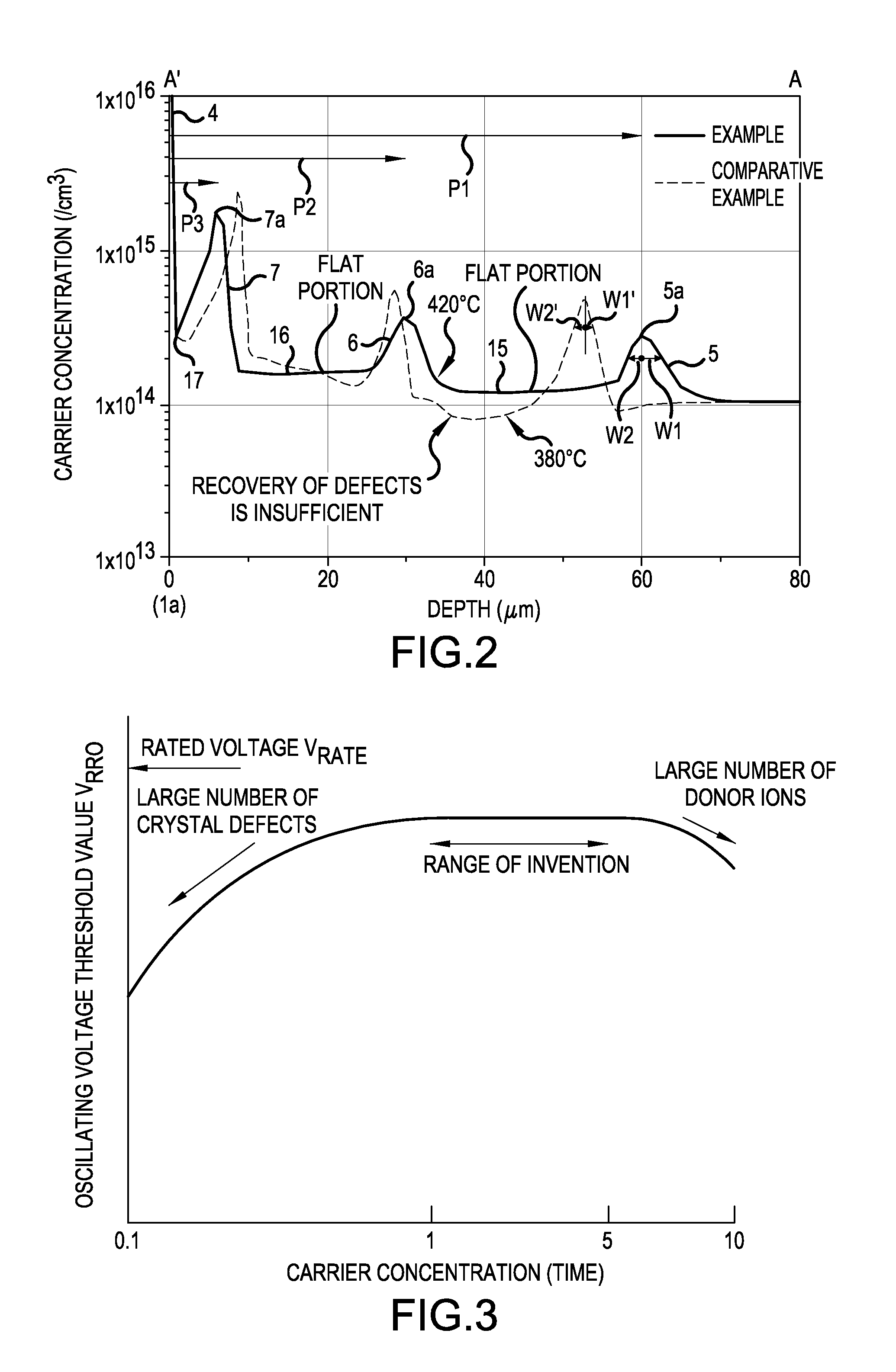Semiconductor device and method for manufacturing the same
a technology of semiconductors and semiconductors, applied in semiconductor devices, electrical devices, transistors, etc., can solve the problems of high surge voltage or oscillation, vacancy-oxide-hydrogen (voh) defect, and the inability to disclose a method for reducing crystal defects caused, so as to suppress the oscillation of voltage and current, suppress the spreading of a depletion layer, and reduce the effect of generation loss
- Summary
- Abstract
- Description
- Claims
- Application Information
AI Technical Summary
Benefits of technology
Problems solved by technology
Method used
Image
Examples
example 1
[0061]The structure of a semiconductor device according to Example 1 will be described. FIGS. 1A and 1B are cross-sectional views illustrating the structure of the semiconductor device according to Example 1 of the invention. FIG. 1A is a cross-sectional view illustrating a main portion and FIG. 1B is an enlarged view illustrating a portion D. FIG. 1B illustrates the depth of n-type buffer layers 5, 6, and 7. A PiN diode 100 is given as an example of the semiconductor device according to Example 1 illustrated in FIGS. 1A and 1B. The PiN diode 100 has a breakdown voltage of 1200 V. The following carrier concentration is calculated from spreading resistance (SR).
[0062]The PiN diode 100 includes a p-type anode layer 3 that is provided in a surface layer of a first main surface (front surface) of an n-type silicon substrate 1 with a thickness of about 120 μm and an n-type cathode layer 4 which is provided in a second main surface (rear surface). Three n-type buffer layers 5, 6, and 7 ar...
example 2
[0099]Next, a method for manufacturing the semiconductor device illustrated in FIGS. 1A and 1B will be described as Example 2. FIGS. 4 to 7 are cross-sectional views illustrating the state of the semiconductor device according to Example 2 of the invention which is being manufactured. First, as illustrated in FIG. 4, for example, the p-type anode layer 3 and the p-type layer 12 of the high-breakdown-voltage junction termination structure 11 are selectively formed in a surface layer of one main surface of the n-type silicon substrate 1 with a thickness of about 500 μm. Then, the insulating film 14, which is an oxide film, is formed on the surface of a region of the n-type silicon substrate 1 which is interposed between the p-type anode layer 3 and the p-type layer 12 and on the surface of a region interposed between the p-type layers 12. Then, the anode electrode 8 is formed on the p-type anode layer 3 and the termination electrode 13 is formed on the p-type layer 12. Then, the other...
example 3
[0116]Next, the structure of an insulated gate bipolar transistor (IGBT) will be described as an example of the structure of a semiconductor device according to Example 3 of the invention. FIGS. 12A and 12B are diagrams illustrating the structure of the semiconductor device according to Example 3 of the invention. FIG. 12A is a cross-sectional view illustrating a main portion of the semiconductor device according to Example 3. FIG. 12B illustrates a net doping concentration distribution along the cutting line A-A′ of FIG. 12A.
[0117]As illustrated in FIGS. 12A and 12B, an n− drift layer 2 which is an n− semiconductor substrate is provided and a p-type base layer 33 which has a higher impurity concentration than the n− drift layer 2 is provided in a surface layer of a front surface of the n− semiconductor substrate. An n+ emitter layer 34 which has a higher impurity concentration than the p-type base layer 33 is provided in the p-type base layer 33. A gate electrode 42 is formed so as...
PUM
 Login to View More
Login to View More Abstract
Description
Claims
Application Information
 Login to View More
Login to View More - R&D
- Intellectual Property
- Life Sciences
- Materials
- Tech Scout
- Unparalleled Data Quality
- Higher Quality Content
- 60% Fewer Hallucinations
Browse by: Latest US Patents, China's latest patents, Technical Efficacy Thesaurus, Application Domain, Technology Topic, Popular Technical Reports.
© 2025 PatSnap. All rights reserved.Legal|Privacy policy|Modern Slavery Act Transparency Statement|Sitemap|About US| Contact US: help@patsnap.com



